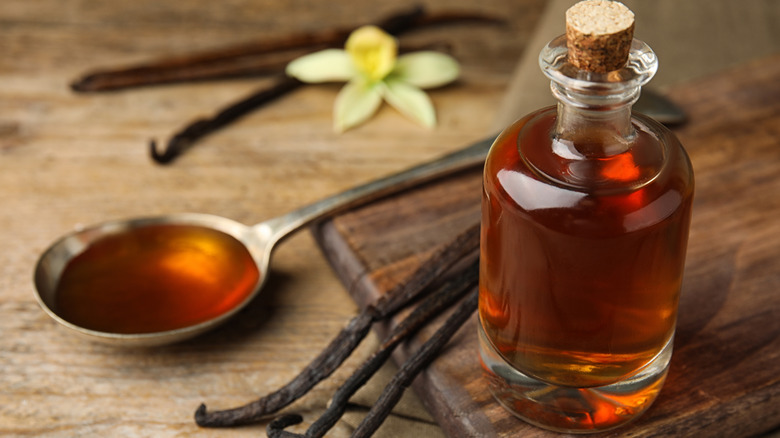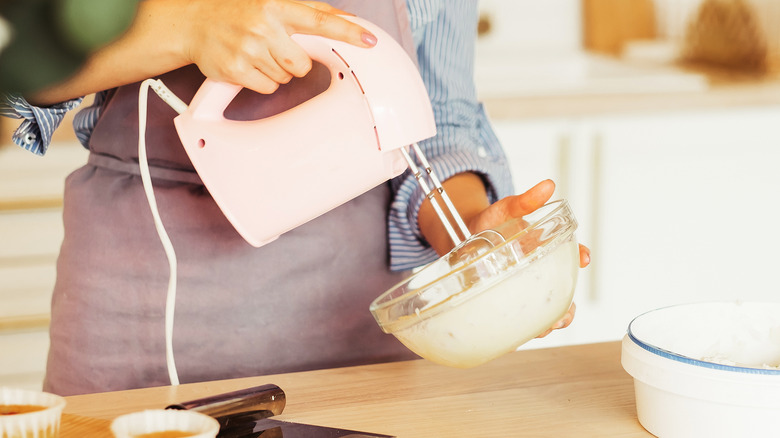When You Can (& Cannot) Substitute Vanilla Extract
Substituting vanilla extract can present bakers with quite a quandary: It's a remarkably delicious but costly ingredient. It's unusual among pantry items because (by weight) it's one of the most expensive ingredients you can buy at the grocery store (and, in fact, one of the most expensive spices in the world), yet it gets used all the time. This is mitigated by the fact that it's a potent item, so a little goes a long way. Few pricey ingredients are as versatile as vanilla extract in their usage across various recipes, unlike saffron, which is not a go-to choice for every chicken dish. It makes you assume vanilla is pretty important, essential even, to most of those recipes.
The reason vanilla is in many baking recipes is pretty straightforward: It tastes really good. Vanilla isn't butter or flour. It isn't really necessary to make anything; it's just a source of flavor. It just so happens that its flavor is one of the most sublimely complex in the world. Vanilla is sweet, floral, rich, and even a little spicy, and people do a lot of work to make sure we all get a chance to taste it. But the demand for vanilla is high enough and the supply low enough for imitation vanilla to have been a necessary invention. So we don't require vanilla; we just really like it. How does that affect when we can and cannot substitute vanilla extract in a recipe?
Substituting vanilla extract depends on the other flavors
A good rule of thumb for losing the vanilla extract is: The more other flavorings you're adding, the easier it will be to substitute out. Vanilla flavoring can either be out in front or play a supporting role, depending on the recipe. Sometimes vanilla is the main flavor of what you're making, such as in vanilla ice cream, white cake, or sugar cookies where sugar and vanilla are doing most of the work. This is where you should hesitate about substituting because there really isn't anything that comes close to replicating vanilla's taste. Almond extract or some vanilla-forward spirits like rum can work okay, but they have different flavor characters that are really going to alter the final result.
However, if your recipe has plenty of other spices and seasonings, like cinnamon, chocolate, you name it, it's a lot easier to substitute out vanilla without noticing. Vanilla is frequently used as a background booster because of its complex flavor that works with so many other ingredients, the same way chicken stock can be used in savory dishes without making them actually taste like chicken. Replacing vanilla extract with imitations or removing it entirely, in these cases, will alter the taste, but not significantly, so you can proceed without worry. It's always best to have some kind of vanilla on hand; it is delicious, but it's not always as essential as you might think.

